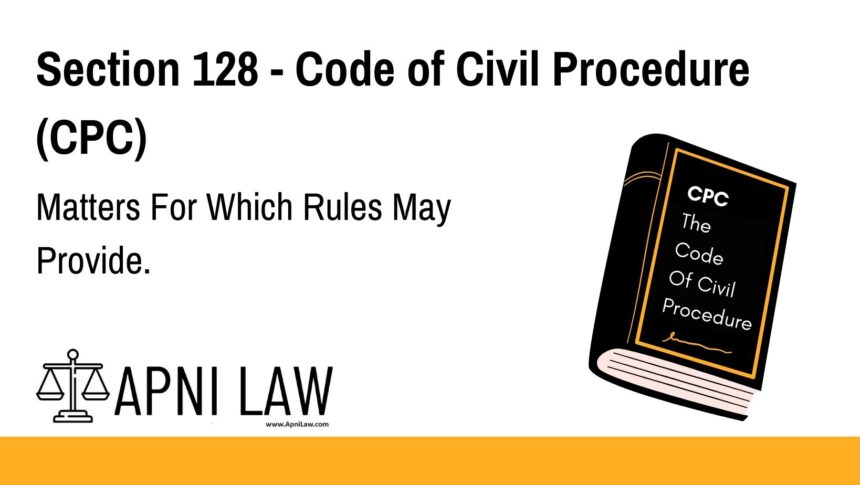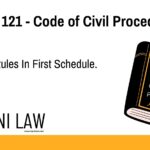Code
CPC(1) Such rules shall be not inconsistent with the provisions in the
body of this code, but, subject thereto, may provide for any matters relating to the procedure of Civil Courts.(2) In particular, and without prejudice to the generality of the powers conferred by sub-section (1),
such rules may provide for all or any of the following matters, namely:—(a) the service of summonses, notices and other processes by post or in any other manner either
generally or in any specified areas, and the proof of such service;(b) the maintenance and custody, while under attachment, of live-stock and other movable
property, the fees payable for such maintenance and custody, the sale of such live-stock and property,
and the proceeds of such sale;(c) procedure in suits by way of counterclaim, and the valuation of such suits for the purposes of
jurisdiction;(d) procedure in garnishee and charging orders either in addition to, or in substitution for, the
attachment and sale of debts;(e) procedure where the defendant claims to be entitled to contribution or indemnity over against
any person whether a party to the suit or not;(f) summary procedure—(i) in suits in which the plaintiff seeks only to recover a debt or liquidated demand in money payable
by the defendant, with or without interest, arising—on a contract express or implied; oron an enactment where the sum sought to be recovered is a fixed sum of money or in the nature of
a debt other than a penalty; oron a guarantee, where the claim against the principal is in respect of a debt or a liquidated demand
only; oron a trust; or(ii) in suits for the recovery of immovable property, with or without a claim for rent ormesne profits,
by a landlord against a tenant whose term has expired or has been duly determined by notice to quit, or has
become liable to forfeiture for non-payment of rent, or against persons claiming under such tenant;(g) procedure by way of originating summons;(h) consolidation of suits, appeals and other proceedings;(i) delegation to any Registrar, Prothonotary or Master or other official of the Court of any
judicial, quasi-judicial and non-judicial duties; and(j) all forms, registers, books, entries and accounts which may be necessary or desirable for the
transaction of the business of Civil Courts.








